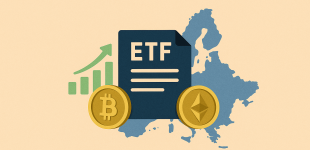
Introduction
The ongoing debate surrounding the regulation of cryptocurrencies by the U.S. Securities and Exchange Commission (SEC) has reached a critical juncture, particularly with its recent actions against major players like Ripple and Ethereum. This scrutiny has prompted a broader discussion about the SEC’s role in the rapidly evolving digital currency market. As stakeholders strive to understand the implications of these regulations, two recent articles from Coinpedia Fintech News and AMBCrypto News shed light on the SEC’s strategy and the controversies it has sparked.
The SEC’s Approach To Cryptocurrency Regulation
The SEC’s regulatory framework for cryptocurrencies has been under development for years, aiming to protect investors from fraud while fostering innovation in the fintech sector. However, the application of these regulations to cryptocurrencies like Ripple and Ethereum has been contentious. The agency has been criticized for what some perceive as an inconsistent application of securities laws, which traditionally govern the trading of stocks and bonds.
In its efforts to classify cryptocurrencies, the SEC has focused on the “Howey Test,” a standard derived from a 1946 Supreme Court ruling that defines what constitutes a security. Under this test, an investment contract exists if there is an investment of money in a common enterprise with a reasonable expectation of profits to be derived from the efforts of others. The application of this test to cryptocurrencies like Ripple (XRP) and Ethereum (ETH) has led to significant debate.
Ripple: A Case Study In Regulatory Challenge
Ripple has been at the forefront of the regulatory storm. In December 2020, the SEC filed a lawsuit against Ripple Labs Inc., alleging that its sale of XRP was an unregistered securities offering worth over $1.3 billion. The SEC’s stance is that XRP is a security and, therefore, subject to strict securities laws. However, Ripple contends that XRP is a currency and should not be regulated as a security, arguing that this classification hampers its competitiveness in the global market.
Ethereum: From No Action To Action?
Ethereum, on the other hand, had initially received a more favorable outlook from the SEC. In 2018, the SEC’s Director of Corporation Finance, William Hinman, stated that Ethereum did not exhibit the properties of a security. However, recent developments suggest a shift in the SEC’s perspective, especially as Ethereum transitions to a proof-of-stake consensus mechanism, which could implicate it more directly in the securities debate.
Is The SEC Overstepping Its Authority?
The question of whether the SEC is overstepping its regulatory authority by imposing securities laws on cryptocurrencies is being hotly debated. Critics argue that the SEC is stifling innovation and driving crypto entrepreneurial activities to more friendly jurisdictions. They claim that the lack of clear guidelines and the SEC’s “regulation by enforcement” strategy creates uncertainty and fear within the crypto community.
Implications For The Future Of Crypto Regulations
The outcomes of the SEC’s confrontations with Ripple and Ethereum will likely set precedents for how other cryptocurrencies are regulated in the United States. A more definitive regulatory framework could emerge from these legal battles, potentially providing the clarity that crypto innovators and investors have long sought. However, if the SEC continues to pursue aggressive enforcement without clearer guidelines, it could dampen the growth of the U.S. crypto market.
Conclusion
As the landscape of cryptocurrency regulation continues to evolve, the industry watches closely. The balance between protecting investors and fostering technological innovation remains a delicate one. The SEC’s actions in the coming months will be crucial in shaping the future of digital currencies in the U.S. and beyond. Meanwhile, the crypto community continues to advocate for regulations that support innovation while ensuring fair and transparent markets.







There are no comments at the moment, do you want to add one?
Write a comment